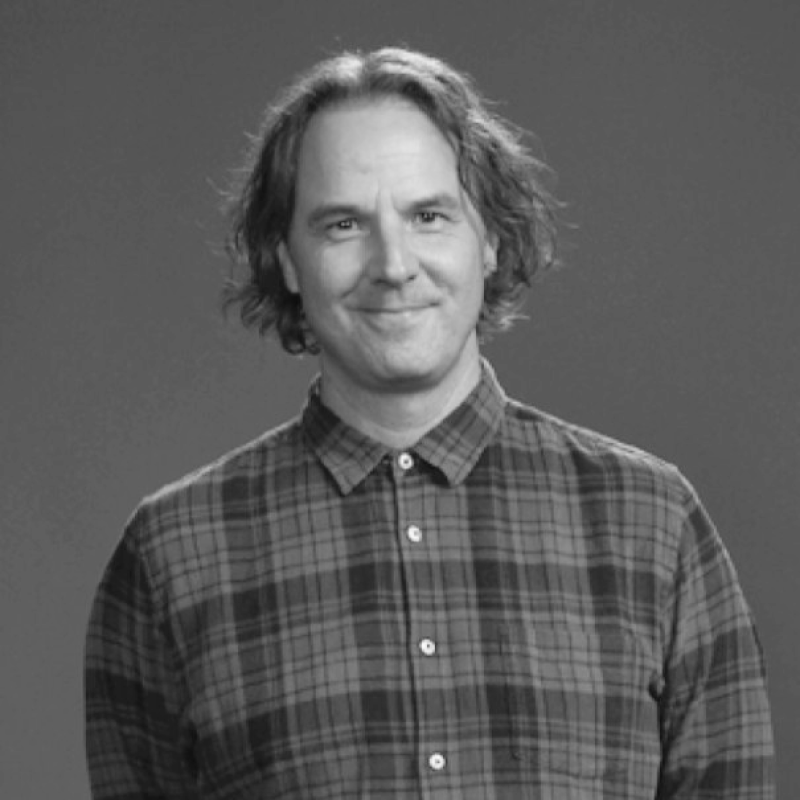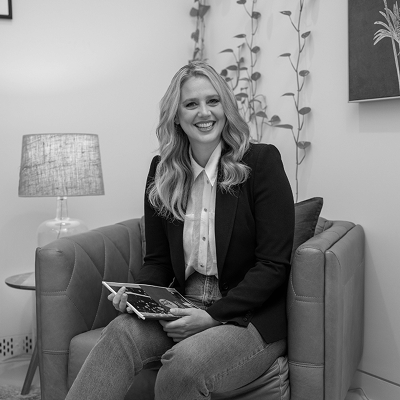
ASKING FOR A FRIEND
How do I keep an exhausted team motivated?
ASKING FOR A FRIEND - QUESTION
When your creative team is limping to the year's end after months of challenges, how do you rebuild motivation without burning people out further? Lindsay Thompson, Creative Director at GrowthOps Khemistry with nearly 20 years of industry experience, and Tara Hurster, psychologist and founder of The TARA Clinic specialising in supporting successful professionals, share practical strategies for leaders facing exhausted teams. From individual coffee chats to structured weekly check-ins, discover how to keep an exhausted team motivated through genuine support rather than corporate cheerleading. Because sometimes the best way forward is acknowledging how hard the journey has been.
When Your Team is Running on Empty: A Leader's Guide to Year-End Recovery
Two years of relentless challenges, constant pivoting, and bad news cycles have left creative teams everywhere feeling utterly drained. If you're looking at your exhausted crew and wondering how on earth you'll motivate them for another year, you're asking the right question at exactly the right time.
The truth is, pretending everything's fine and expecting people to bounce back without acknowledgement or support is a recipe for January resignation letters. But there are genuine, human ways to help your team finish strong and start fresh.
This question was answered by Lindsay Thompson, Creative Director at GrowthOps Khemistry and mental health advocate with almost 20 years in the creative industry, bringing deep insight into team leadership during challenging times, and Tara Hurster, psychologist and founder of The TARA Clinic, a mental health expert supporting successful people to regain control and wellbeing. The discussion was facilitated by Andy Wright, Host and CEO of Streamtime, founder of Never Not Creative with extensive experience supporting creative industry wellbeing.
The Individual Coffee Chat Approach
Lindsay's first piece of advice cuts straight to the heart of good leadership: "What I try to do coming into the end of the year is just have a coffee individually with each one of my team members in the creative department specifically and just talk about the year, their view, my view, you know wins, losses etc."
These aren't performance reviews or formal check-ins. They're genuine conversations about how people are feeling, what they've experienced, and where they see themselves heading. Lindsay emphasises talking about "personal things, you know how they're feeling coming into the end of the year" because work and life aren't separate entities, especially after the past few years.
The key is coming prepared with something forward-looking. "I've always come in prepared with a theme for the next year," Lindsay explains. "Sometimes it might be hey what's the extra five percent that you can bring, not be expected to bring, you know what would you like to bring to the company or the position or the creative whatever it might be."
This approach switches the power dynamic. Instead of telling people what they need to do differently, you're asking what they want to contribute. It's the difference between homework and ownership.
Why "Just Move On" Never Works
If you're tempted to tell your team to forget about the tough times and focus on the future, Lindsay has a reality check: "It's really difficult to just say look it's over forget about it move on and we're coming back to do it all again because that is never ever going to work, it's never going to work because usually what that happens is that you've probably got about five resignation letters on your desk by the end of January."
The past two years have fundamentally changed how we work and what we expect from our jobs. Pretending otherwise or rushing past the processing phase will backfire spectacularly. People need acknowledgement of what they've been through before they can genuinely commit to what's ahead.
Creating Equality in Struggle
One of the most important points both speakers raised is helping people understand they're not alone in their struggles. As Lindsay puts it: "Make sure that people understand that they are not alone and were never alone during the year, so that everyone's handled it in their own different ways but that's not saying that the person next to you because they seem like they've done great work and been successful they haven't suffered their own as well."
Tara reinforced this with a brilliant analogy: "Think about Instagram right, any Instagram account that you look at is the curated version of someone's life, it's the same as what we sometimes bring to work, it's the curated observable part of us." Just because someone appears to be coping doesn't mean they haven't been struggling internally.
Creating this understanding helps build genuine team solidarity rather than the toxic comparison that can happen when people assume others are handling everything better than they are.
Structured Support Through Regular Check-ins
Tara introduced a practical framework that goes beyond year-end conversations. She recommends implementing "a weekly 15 minutes personal stand-up meeting with each individual person in your team" using a structured format that covers:
- What the individual wants to achieve and grow in
- Specific tasks linked to company goals they're focusing on
- What blocks they're facing that prevent them from delivering
"Sometimes those blocks might be oh I'm waiting for Mary to reply this email, so then you as the supervisor know oh okay so I need to follow up Mary," Tara explains. This prevents the assumption that someone's not pulling their weight when they're actually waiting on something outside their control.
The Ted Lasso Management Model
Lindsay referenced the popular show's approach to leadership as something worth emulating: "If anyone's watched Ted Lasso, his quote of just be a goldfish I think I'm going to use that at the end of this year."
This represents a shift away from "the hairdryer approach of management which is shouting at people, being really overly assertive, being overly like masculine traits" towards asking "hey how can I help you all." It's about showing vulnerability and focusing on support rather than demands.
Building Connection Through NNC Circles
When teams are struggling with exhaustion and motivation, peer support can be incredibly valuable. NNC Circles are peer support groups specifically designed for creatives facing mental health challenges. These monthly sessions connect small groups of 8-10 creatives in safe, non-judgmental spaces to share experiences and learn practical skills.
For leaders dealing with exhausted teams, Circles can provide both you and your team members with additional support networks. The program includes mental health education, group discussions, and action planning, all facilitated by trained professionals. It's particularly valuable for creatives experiencing anxiety or struggling with work-life challenges.
The six-month commitment ensures genuine relationship building and lasting support, which can complement the individual attention you're providing as a leader.
When Professional Help is Needed
If you're noticing that team exhaustion is moving beyond normal workplace stress into more serious mental health territory, it's important to know when to seek additional support. Signs might include persistent anxiety, significant changes in behaviour, or team members expressing feelings of hopelessness.
Both leaders and team members can benefit from professional mental health support. The Never Not Creative help resources provide immediate access to crisis support services and mental health professionals across different countries.
Remember, suggesting professional help isn't admitting failure as a leader. It's recognising that some challenges require specialised support, and connecting people with the right resources is actually excellent leadership.
Moving Forward Together
Keeping an exhausted team motivated isn't about pretending the hard times didn't happen or demanding people just push through. It's about acknowledging the struggle, creating genuine connection, and building forward momentum together.
The most important thing to remember is that your team's exhaustion is real, valid, and shared. By approaching the situation with empathy, structure, and honest conversation, you're not just helping them finish the year, you're building the foundation for a healthier, more sustainable way of working together.
You're not alone in facing this challenge, and neither are your team members. Sometimes the best motivation comes from simply knowing someone sees the struggle and cares enough to address it properly.
our guests
Industry Leader

Lindsay Thompson
Mental Health Expert

Tara Hurster
Host

